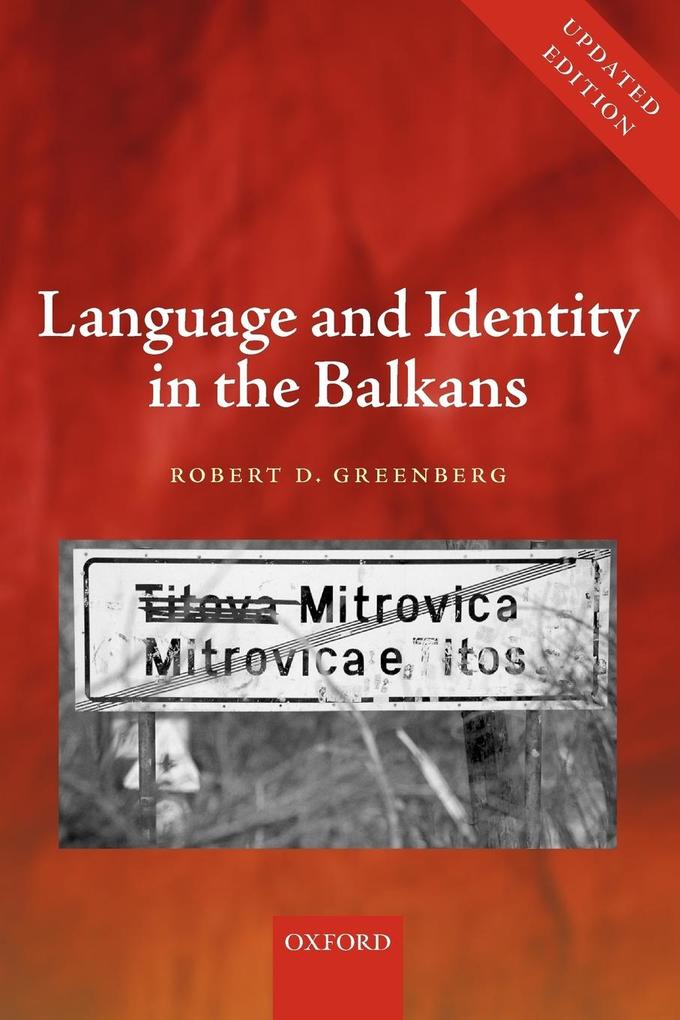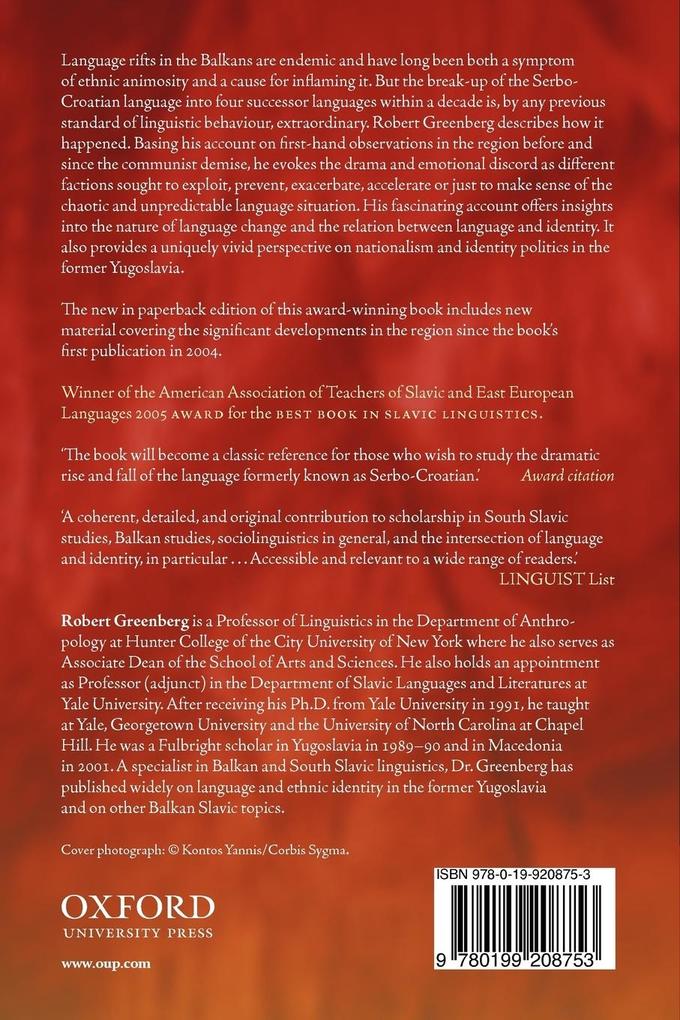Against a backdrop of the ethnic strife in the Balkans and the collapse of Yugoslavia in 1991, Robert Greenberg describes how the languages of Croatia, Bosnia, Kosovo, Serbia, and Montenegro came into being and shows how their genesis reflects ethnic, religious, and political identity. His first-hand observations before and after Communism offer insights into the nature of language change and the relation between language and identity.
Inhaltsverzeichnis
- 1: Introduction
- 2: Serbo-Croatian: United or Not We Fall
- 3: Serbian: Isn't My Language Your Language?
- 4: Montenegrin: A Mountain Out of a Mole Hill?
- 5: Croatian: We Are Separate But Equal Twins
- 6: Bosnian: A Three-Humped Camel?
- 7: Conclusion
- 8: Postcript: Developments Since 2004
- Appendix
- Works Cited
- Index











